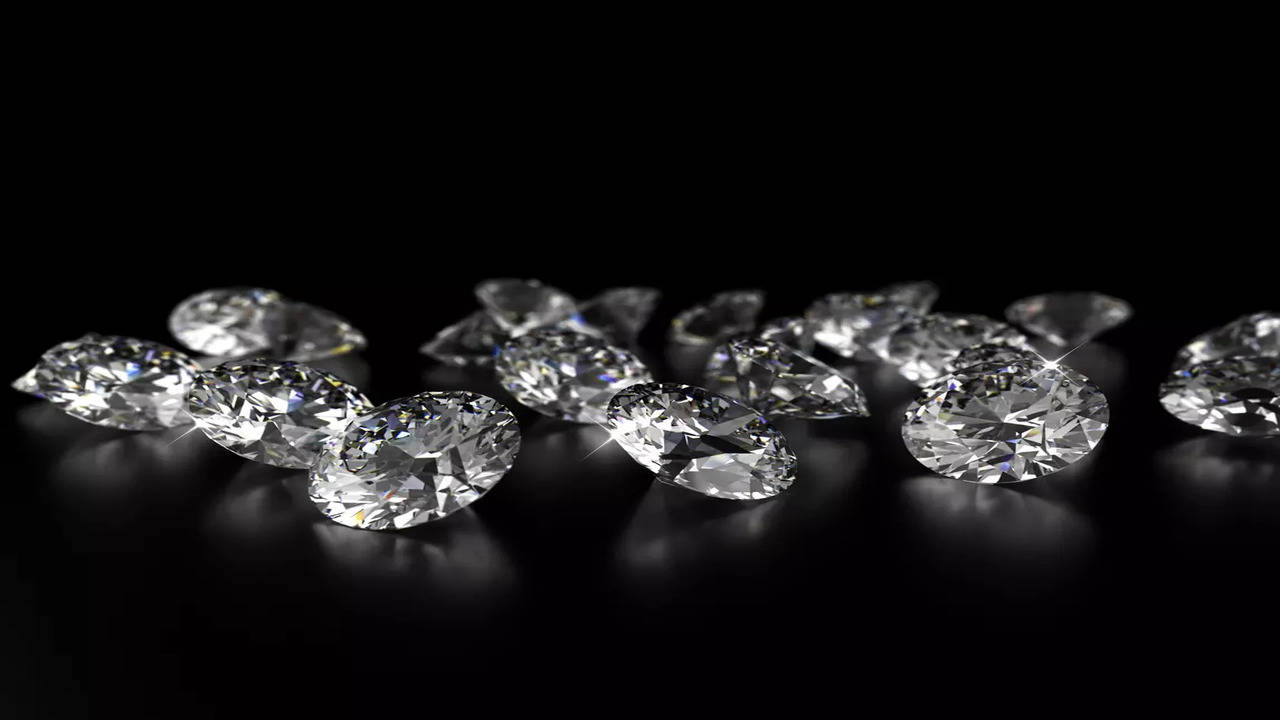With When Romance Met Comedy, Caroline Siede examines the history of the rom-com through the years, one happily ever after (or not) at a time.
The 2004 romantic comedy Saving Face starts with a premise that feels both quietly revolutionary and just a touch familiar. Young surgeon Wilhelmina “Wil” Pang (Michelle Krusiec) finds herself at odds with the more conservative streak of her Chinese-American immigrant community in Flushing, Queens. While her widowed, propriety-minded mom Gao Hwei-Lan (Joan Chen) keeps trying to set her up with eligible men, Wil actually has eyes for self-assured ballerina Vivian Shing (Lynn Chen). But Wil has to keep her sexuality a secret lest she insult the “face”—or social honor—of her family. The opening few minutes of Saving Face promise a story like My Big Fat Greek Wedding or Bend It Like Beckham, in which the plucky daughter of immigrants helps expand her community’s horizons with the depth of her passion. And then Hwei-Lan shows up on her daughter’s doorstep, 48 years old, unwed, pregnant, and with nowhere else to go.
The image of a woman pushing 50 being kicked out of the house by her judgmental dad is both tragic and kind of funny, which is the sort of impressive tonal balancing act Saving Face pulls off throughout. In her director’s note, Alice Wu explains that she wrote Saving Face as a love letter to her own mother. She wanted to remind her that it’s “never too late to fall in love for the first time”—that she could live for herself and not just for her adult daughter. So while half of Saving Face is a sweet lesbian romance between free-spirited Vivian and endearingly anxious Wil, the other half is an incredibly thoughtful mother/daughter story about two women who couldn’t seem more different but who ultimately have the same path to walk when it comes to taking charge of their own lives. Wu’s debut feature does what romantic comedies have always done best: It provides a haven for women’s stories of all kinds.
The first time I saw Saving Face, I couldn’t believe that a charming, funny, complex, beautifully felt movie like this existed and that it hadn’t been embraced as part of the mainstream rom-com canon. Though Autostraddle has named it the second-best lesbian movie of all time (behind only But I’m A Cheerleader), and filmmakers like Ali Wong, Lulu Wang, and Awkwafina have cited it as a major influence, Saving Face is mostly still a hidden gem for mainstream rom-com fans. It was released in the era of The L Word and Imagine Me & You, when there was a sense that queer romances would just keep coming, which is perhaps part of the reason critics tempered some of their praise for Saving Face, calling it slight and familiar, cute but hardly groundbreaking. But the film seems more ahead of its time when viewed from the vantage point of 2021, when cheerful lesbian rom-coms like Happiest Season are still few and far between, and Asian American characters (and stars) have only now started to move to the center of Hollywood romances, in movies like Crazy Rich Asians and To All The Boys I’ve Loved Before.
With its New York City setting, Italian-inspired score, and breezy physical comedy, Saving Face continues the classic rom-com tradition of films like Moonstruck and When Harry Met Sally. But it’s also brimming with the sort of texture and specificity that romantic comedies were increasingly starting to lose in the mid-aughts. Even its minor characters—like David Shih as the friend who swoops in to save Wil from a terrible blind date at a community dance, or Jessica Hecht as her chummy hospital co-worker—feel like they exist beyond the edges of what we see on screen. There’s a welcome sense of playful whimsy to Wu’s filmmaking, too. She briefly adopts the look and feel of an intense detective procedural for a sequence where Wil enlists her hospital colleagues to help her find her mom a date.
Like many rom-coms, Saving Face isn’t exactly unpredictable. You can tell from the beginning that this is the sort of movie where everything is ultimately going to work out okay. But the journey to that happy ending is full of surprises, which is what separates a great rom-com from a good one. Some of the movie’s revelations are plot twists (Wu has a lot of fun playing around with the mystery of who fathered Hwei-Lan’s baby), but a lot of them come from how casually and realistically Saving Face lays out information that a lesser rom-com would reveal in lazy exposition dumps. For instance, we learn everything we need to know about the stubbornness of Wil’s grandfather (Jin Wang) from the way he commandeers an entire basketball court for his solo tai chi practice.
Wu is also careful not to depict the Chinese-American community as a monolith. Wil is so deeply closeted around her family that we assume Vivian must be too, until her mom calls and leaves a sweet answering machine message asking about her daughter’s new girlfriend. It’s one of the many places where Wu emphasizes the diversity of perspectives that exist in Flushing’s Chinese-American enclave. While Hwei-Lan dislikes her daughter’s tomboyish style, Wil’s warm grandmother (Guang Lan Koh) compliments the practicality of her granddaughter’s footwear with the darkly funny line, “I had a pair just like those during the Revolution. Sturdy and practical. Just the thing for war.”
Saving Face is a testament to what can happen when diverse voices are supported in the film industry. Wu, who based the story on her own complicated experience of coming out to her mom, was working as a program manager at Microsoft when she wrote the script. But she got such positive feedback on it that she decided to leave computer science and give herself a five-year deadline to become a filmmaker. Saving Face started to gain traction when the screenplay won a Coalition Of Asian Pacifics In Entertainment contest. But a lot of the studio execs who showed interest balked at the idea of a film about characters who were both Asian American and gay. They encouraged her to make the leads white or the love story straight. Both suggestions were non-starters for Wu.
She eventually found a champion in Teddy Zee, then-president of Will Smith’s Overbrook Entertainment production company. The son of Chinese immigrants himself, Zee was looking to produce a more three-dimensional Asian American story than usually seen in Hollywood studio filmmaking. Yet even with Zee onboard, Wu still had to fight her own battles. She was adamant that despite the film’s tiny budget, she needed a sweeping aerial shot of the Manhattan Bridge to situate the world. In one of the more charming bits of rom-com filmmaking trivia, Zee helped Wu get the establishing shot she wanted by allowing Saving Face’s camera crew to tag along on a helicopter shoot for Will Smith’s Hitch, which was filming at the same time.
“Alice comes off as very accommodating. But when it comes to her vision, she’s a killer,” Zee explained. Wu won a battle over the film’s language as well. She knew that for the world to feel authentic, large swathes of Saving Face had to unfold in subtitled Chinese. Nearly all of Hwei-Lan’s dialogue is in Mandarin, and the way Wil switches between English and Mandarin when speaking to her mom helps inform their complicated relationship. Saving Face is interested in the grey areas of parent/child dynamics, the times when parents are able to live in denial because the truth hasn’t technically been spoken aloud. As Wu put it, “This is not a story about when will this woman tell her mom. It’s a story about when will these two women drop their masks and really see each other.”
Wu’s smartly crafted script gives Wil and her mom parallel arcs as they navigate situations that put them at odds with the more traditional ethos of their Chinese-American community. Wil and Hwei-Lan are both locked in a state of arrested development, unable to fight for what they want. Wil may have the resume of an impressive surgeon, but she’s like an awkward teen in her romantic life (something Krusiec plays perfectly). Hwei-Lan, meanwhile, is even more childlike. Her father’s rigid, controlling hand has left her without any real sense of self. And, tragically, her own ostracism doesn’t prevent her from passing that hurt on to others. Saving Face delivers one particularly brutal scene where Hwei-Lan simply denies her daughter’s sexuality.
In the end, however, Saving Face ultimately takes a turn for the hopeful. “The thing is it’s not a cynical film,” Wu explained back in 2005. “I’m not a cynical person… I’m not trying to push the boundaries; I’m just trying to tell a good story.” After digging into some nuanced dramatic territory, the climax of Saving Face embraces the madcap theatrics of a soap opera, which was a turnoff for some critics at the time. But Wu earns that over-the-top ending because Hwei-Lan has spent the entire film obsessed with Chinese soaps. That she and Wil ultimately find themselves inside of one is both funny and moving. They’ve stepped outside of their passive lives and entered the realm of romantic fantasy. It’s the same sort of winking tonal shift that the TV series Jane The Virgin took so effectively while homaging telenovelas.
Saving Face subverts some rom-com clichés while leaning into others, before ultimately ending on a truly romantic note. The final scene brings the film full circle and ties all of its themes together in a satisfying, well-earned way. Wu depicts a world where prejudice exists but change is still possible. And, crucially, Wil, Vivian, and Hwei-Lan don’t need to leave behind their community to find it. They just need to defy its more regressive, patriarchal side. It’s a message that’s still relevant to the unique challenges Asian Americans can face when coming out.
“Anytime you can increase the human capacity for empathy, you’ve won,” Wu explained in the lead up to her 16-years-later follow-up, queer Netflix rom-com The Half Of It. After the success of Saving Face, Wu stepped away from filmmaking for both professional and personal reasons. And, unfortunately, few gay Asian American romances were made without her. “At that time, I thought, this is going to be commonplace, right?” Krusiec explained in a profile about Wu’s long-awaited return to filmmaking. “Every year, I thought we were going to have three or four films like [Saving Face]. I was still too innocent to understand systemic racism, or to understand just how special that film was.”
So Saving Face remains its own little oasis. It’s a movie with heart, specificity, and three lovely central performances—exactly the sort of personal, auteurist vision that the romantic comedy genre desperately needed in the aughts. The film isn’t embarrassed to wholeheartedly embrace rom-com tropes alongside its emotionally nuanced exploration of identity and family. “The world is getting too hard to predict,” one character sighs as the film’s romantic pieces finally fall into place. But it’s that mix of unpredictability and comforting familiarity that makes Saving Face so singular.
Next time: There’s Something About Mary changed rom-coms forever.




